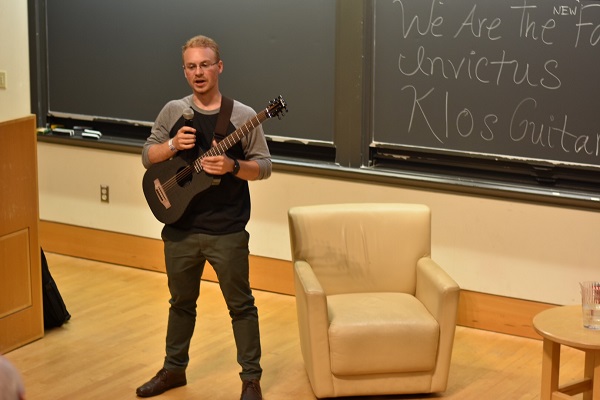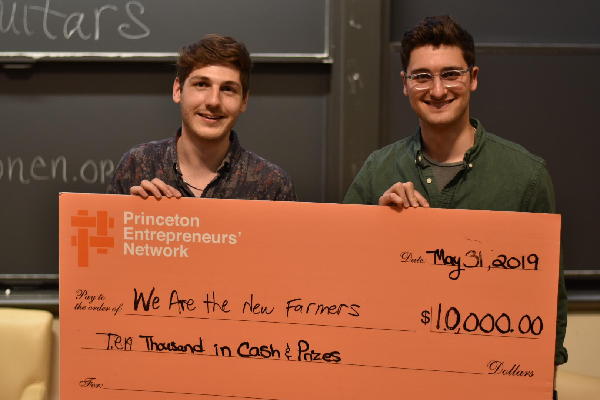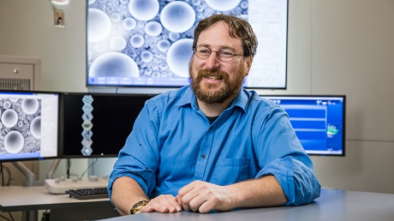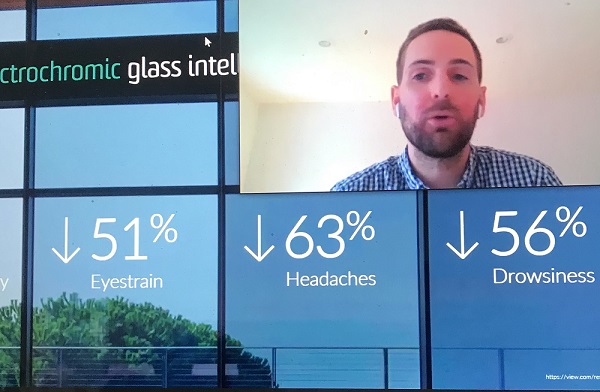In a Shift Away from Digital Tech, These Startups Won the 2019 PEN Startup Competition
Spirulina is a powerful microalgae that has been around for 3.5 billion years. High in protein, vitamins, minerals and antioxidants, this superfood was eaten by the Aztecs and African tribes in sweltering lands with steamy ponds where the mercury stayed well above 90 degrees.
But these days it comes from those oppressively hot parts of the world in packets of perishable, potent dried powder that often develops into a mold with an awful stench.
“It gets a fishy smell and is disgusting and hard to eat. It ruins anything you mix it with,” said Daniel Bernstein, who has become a spirulina authority.
The solution to avoid those pitfalls: Grow spirulina locally in ideal conditions, eliminating travel time and the need to dry and package it, he said.
Bernstein is a member of the Brooklyn startup, “We Are the New Farmers.” He pitched his startup to fellow Princeton University students and alumni, and to the members of 17 other startups competing for $10,000 in cash and prizes at the annual Princeton Entrepreneurs’ Network (PEN) startup competition, on May 31.
The Farmers won the top honors, with the prize including $5,000 and a paid trip to meet potential investors in San Francisco, valued at another $5,000.
Startup KLŌS Guitars (Provo, Utah), which builds durable guitars and ukuleles, grabbed the People’s Choice Award, winning $1,000.
Invictis Technologies (Princeton) finished in second place and attracted much-needed attention to a personal ordeal that Miles Cole, Invictis cofounder/CEO and a Princeton junior, faces every day. He has severe hemophilia A, so he must intravenously inject himself daily.
“I personally know how outdated, inefficient, and dangerous current needle injection technology is. This is what motivated me to build the first-ever portable automatic intravenous injection device,” he states on the startups’ Princeton University Keller Center webpage.
“When you go to the doctors and you need to get blood drawn, a nurse has to manually inject a needle in your arm, and a lot of times they don’t actually get the vein on the first try. A lot of time, depending on your age, size, weight and hydration, the nurse will have to stick you two or three times before getting your vein,” he said.
Cole explained that his
company’s device removes human error by using vertical injection technology,
and he noted that it’s small, portable and accurate. “Our device is a cuff you wrap around your arm, and
you get the vein automatically on the first try, the first time, every time.”

The other winning startup, KLŌS Guitars, was founded by Adam Klosowiak, a 2015 Princeton graduate with an electrical engineering degree, and his older brother, Ian, who graduated from Brigham Young University. They make carbon fiber guitars and ukuleles.
“Carbon fiber is a really durable material. That makes it an excellent for instruments because wooden instruments are very fragile and susceptible to damage. And, obviously, when you’re traveling, the susceptibility to damage increases,” said Adam.
The business opened its online doors four years ago. “We do over $1 million in revenue and have sold 3,500 instruments in 74 countries and in all 50 states, all seven continents,” he added.
The big winner of the event was We Are the New Farmers.
Bernstein crossed paths with Farmers’ Jonas Günther and Michael Udovich in January 2018. Günther had started conducting indoor farming research with funding from New York University’s Tandon School of Engineering in the fall of 2016. He built a farm in the basement of the engineering school, and Udovich joined him, working on that project in the spring 2017.
Bernstein graduated from Princeton in 2014 and joined the team in January 2018 after four years of food retail investing and advisory work. He then began working on We Are the New Farmers. They incorporated the business in May 2018, and finally began selling in February 2019.
“The reason we chose the name, ‘We Are the New Farmers,’ is we hope to change how people think about their food and where it comes from. Spirulina has been around for billions of years on the planet. It’s one of the first photosynthetic organisms on the planet. And it’s one of the healthiest and most sustainable foods out there,” said Bernstein.
By farming it locally, the trio solved a lot of problems, especially the smell. They now operate an indoor farm at the Brooklyn Army Terminal.
“We grow it locally, close to the consumer. You never need to dry it into a powder. So, it’s a fresh product and you avoid the bad taste and bad smell. It’s easy to cook with, has a texture similar to hummus, like a paste. We are working with local chefs to try to find new ways to incorporate it into meals,” Bernstein added.




